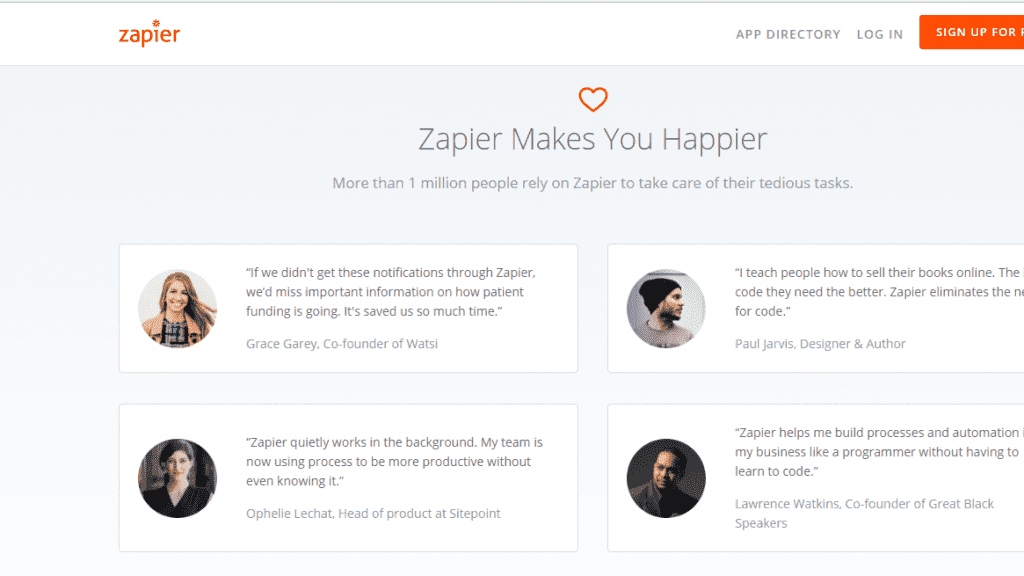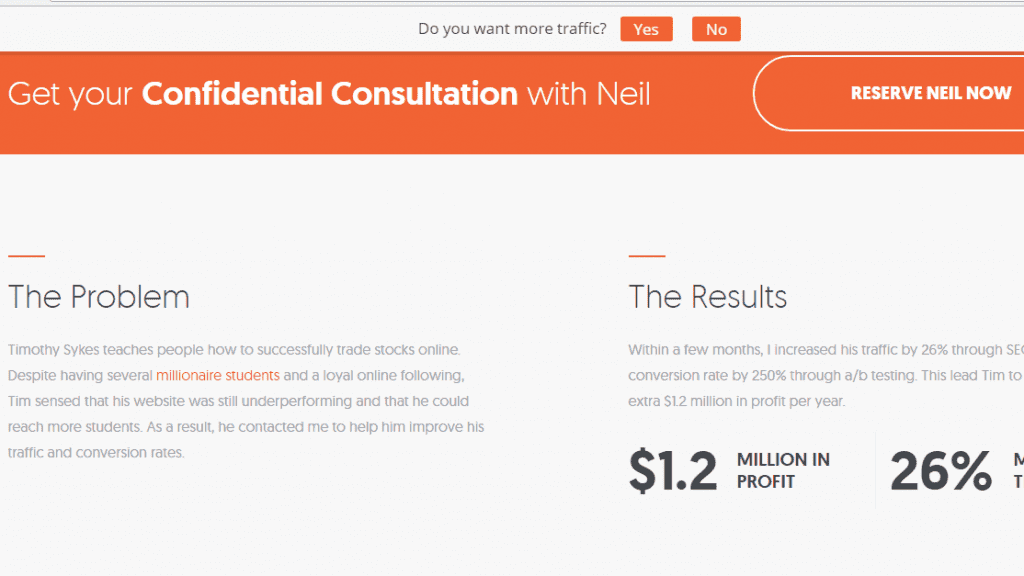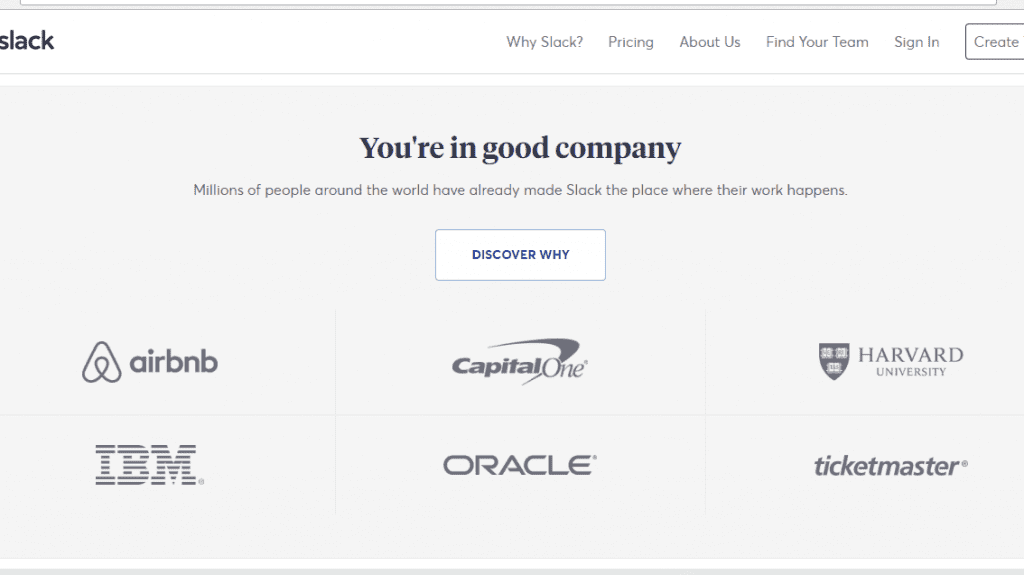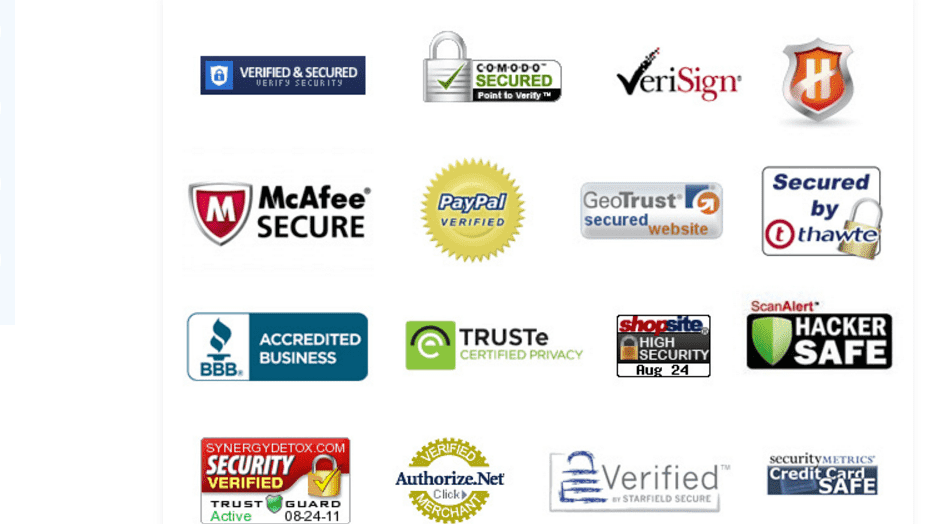When it comes to conversions, forget about the optimized website, having as few fields as possible and keeping things above the fold (just for a moment).
Arguably one of the most powerful ways to increase conversions is with none of these things, but rather, with social proof.
Social proof is a psychological and social phenomenon that every savvy marketer and business are taking hold of. Social proof is the idea that people will change their behaviour based on the assumption that the behaviour is correct.
When it comes to business, marketers use social proof as a means to show that the consumer can trust the product.
The concept is all around us. It’s why restaurants often have a small reception area so that those waiting for a table will have to wait outside. When people pass by the restaurant and see the crowd, it suggests that the restaurant must be popular and therefore is also good.
Ultimately, there are several different types of social proof. Here are a few examples.
There’s expert social proof (for example, an industry expert recommends a product, which causes more people to buy it), user social proof (i.e. proof from customers), friends/family social proof and even celebrity social proof.
As you will see, social proof yields incredible power when it comes to increasing conversions and sales. It is not a question of whether or not social proof works but rather, what methods are the most effective.
Here are some of the best forms of social proof that businesses should use if they want to see the best results.
1. Testimonials
Research by ConversionXL found that testimonials performed best. Testimonials are statements that “testify” as to the quality of the product or service.
Just how powerful are testimonials?
Research found that they are capable of increasing conversions by as much as 34%.
Testimonials can come from your customers or industry experts (in the form of media mentions), but here is an example of some customer testimonials on Zapier’s homepage.

Strive to have both.
When it comes to testimonials, some are better than others. Here are some of the best practices to keep in mind:
- Include Pictures in your Testimonials. ConversionXL also found that testimonials with photos were much more effective.
Again, the reason for this is that it creates trust. Avoid anonymous testimonials. Aim to provide as many details as you can about who the person is (but, of course, ensure that you have permission to do this).
- Stay Away From Generic Testimonials. A key element of any type of social proof is that the details always matter. What type of problem did the product or service help the customer to solve? Be specific.
2. Product Reviews
Today’s average consumer reads a lot of product reviews before making a purchase. When it comes to conversions, use product reviews to your advantage as they create trust in the product or service. Interestingly enough, studies continue to show that product reviews are just as trusted as a recommendation from a friend.
In fact, one survey found that 88% of consumers trust product reviews as much as a recommendation from a friend.
Amazon, for example, displays product reviews for every product. But, just how effective are product reviews when it comes to conversions?
One study showed that product reviews can translate into as much as 12.5% higher conversions than products without such reviews.
When it comes to product reviews, again, not all methods are created equal, so here are some tips:
-
- Quantity Matters. The more the better. The same study above found the more reviews, the more conversions. And this idea is replicated over and over.
- Make Giving Product Reviews Easy. When it comes to product reviews, many businesses struggle with how to get them in the first place. The key is always to eliminate any unnecessary fields – keep it to the bare minimum.
We’ve covered the topic of how to get more online reviews in the past.
3. Case Studies
Case studies are yet another very powerful form of social proof that’s tied to increased conversions. Case studies are perceived as having high-authority given that they tend to be lengthier in nature.
Because case studies are also personal, they are also perceived as very trustworthy.The key with case studies is to ensure that you have clearly defined a problem.
There are different types of case studies. Sometimes, case studies are like success stories. Other times, case studies are written by the actual business themselves and what it did to achieve a particular result.
Neil Patel is the authority on the topic and a great example of how to do case studies the right way. He increased his sales by 185% with his case studies alone.
In one case study, he wrote about how he increased stockbroker Tim Sykes’s website traffic by 26% and earned him an extra 1.2 million a year.


It doesn’t get much more powerful than that.
Tips:
- Include Data. Back up the claim with actual data. Get specific about what problem the product or service actually solved, just like how Neil Patel did it in the example above. You can see the full case study here.
4. Customer Logos, Trust Seals & Industry Certifications
Customer logos are similar to media mentions but are a lot easier to implement. This form of proof simply features customer logos of industry brands you’ve been featured in.
Here’s an example from Slack’s website.


Again, they are a form of expert social proof, signaling that your product can be trusted and is high quality since it’s used by the experts.
Voices.com added a row of customer logos to their website and increased conversions by 400%.
Trust seals/badges are additional options and the norm for e-commerce websites. There are many different security seals you can choose from, from Norton to Better Business Bureau. Keep in mind, however, that not all trust seals are as trusted as others, so it’s important to do your research.


If you have industry certifications, these also have a very similar affect.
One Final Note About Social Proof
There are many other forms of social proof out there, too, from social media (i.e. displaying your social media following on your website) or your product adoption stats (i.e. this is many people use our product). These are great, but they can pose a risk if your numbers are low.
The reason is that people can’t put the same level of trust in the product that they would with a lot of numbers behind it (again, it goes back to the power of numbers).
The Bottom Line
The great thing about leveraging social proof is that it’s relatively simple to implement and is very cost-effective to do. While it may take time and effort to get a lot of customer reviews or industry credibility, some forms as social proof are as simple as installing a badge on your website.
Aim to include as many of these forms of social proof as possible. If you really want to take it up a level, consider doing A/B testing to determine which aspects deliver the best results.
Yocale can help you get more verified and automated reviews. Click here for more information. Yocale, the leading scheduling software, also offers a free suite of business management and marketing tools.




